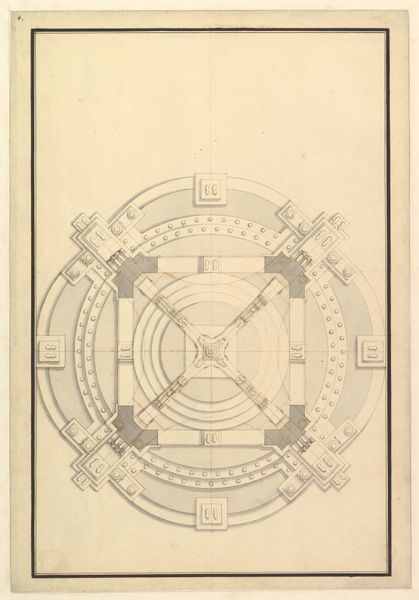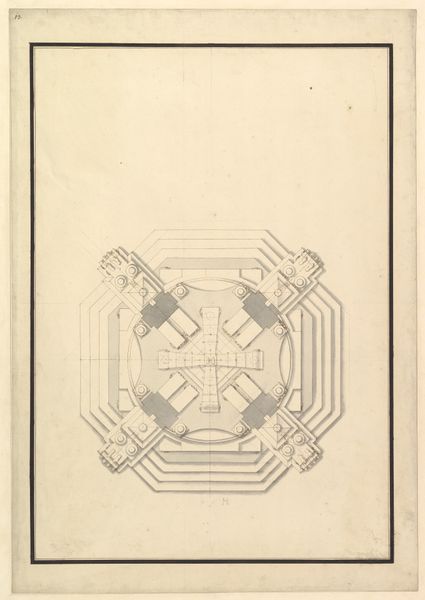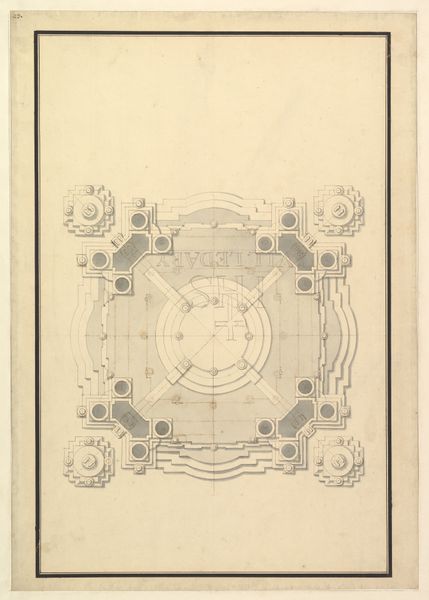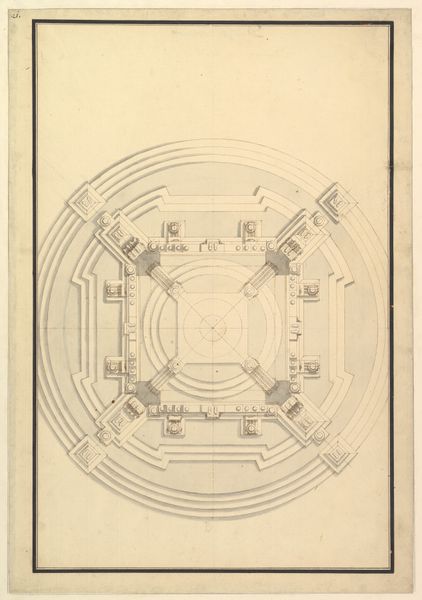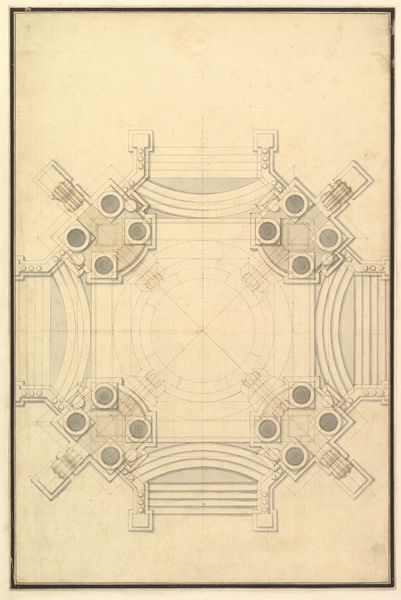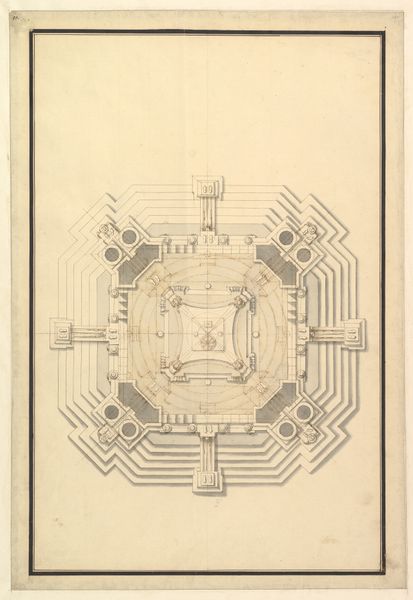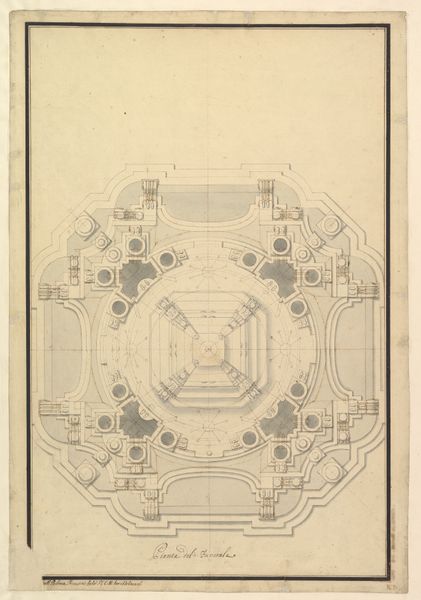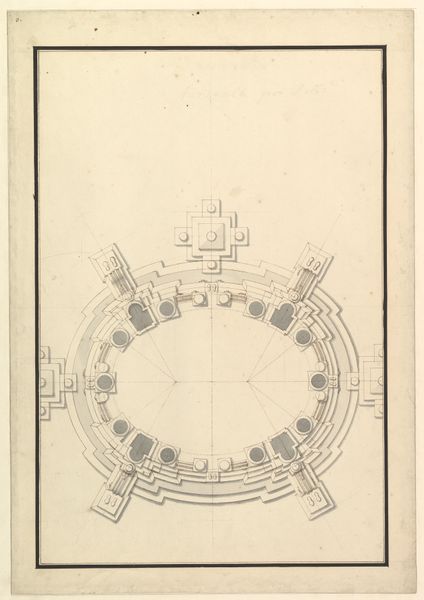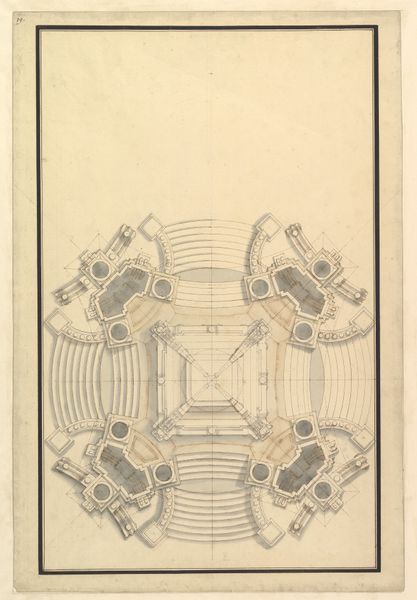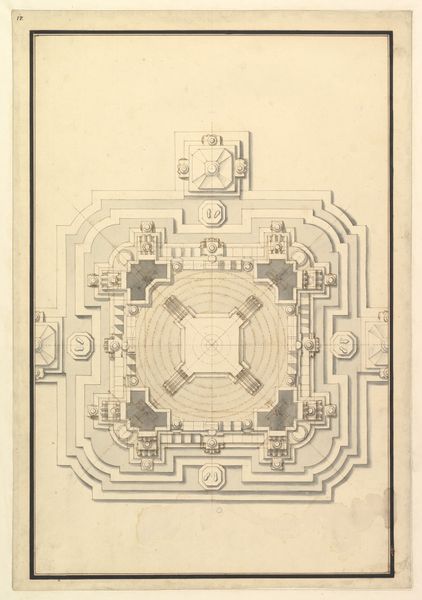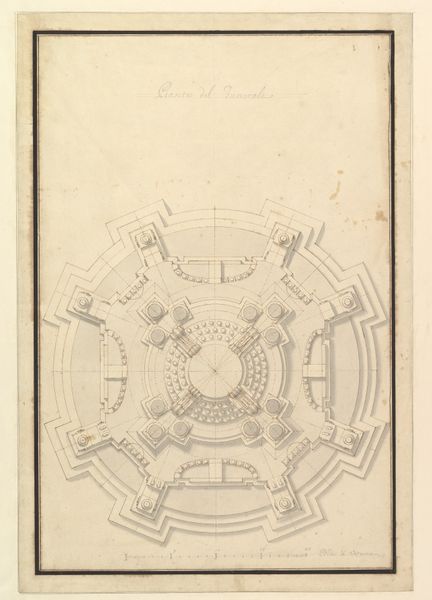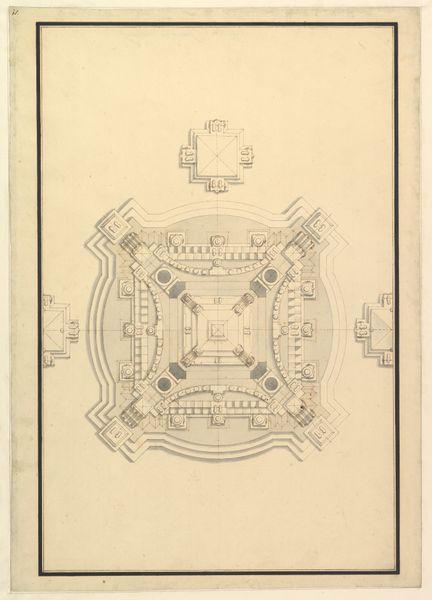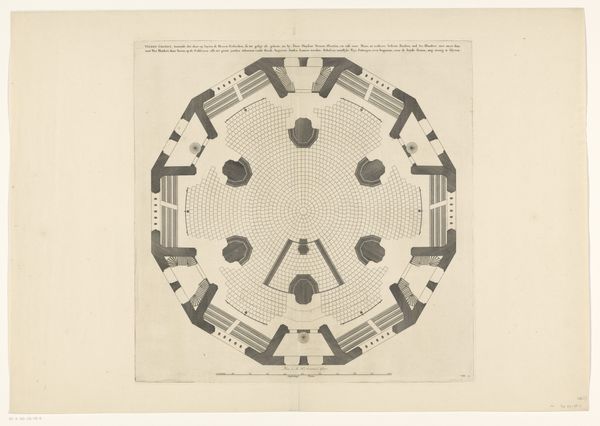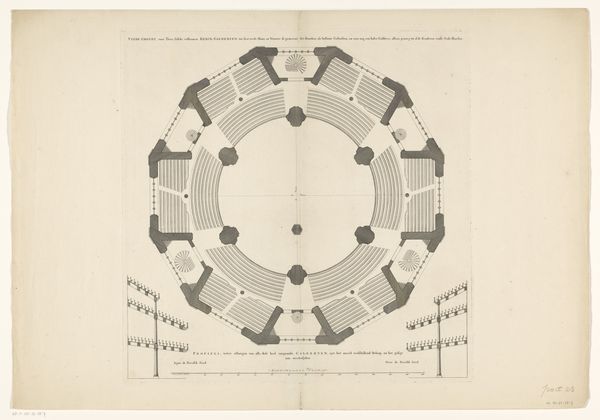
Ground Plan for a Catafalque for Frederick Augustus I, King of Poland and Elector of Saxony (1694-1733) 1728 - 1738
0:00
0:00
drawing, print, etching, architecture
#
drawing
#
baroque
# print
#
etching
#
geometric
#
architecture
Dimensions: sheet: 18 3/16 x 14 15/16 in. (46.2 x 38 cm)
Copyright: Public Domain
Editor: We’re looking at “Ground Plan for a Catafalque for Frederick Augustus I, King of Poland and Elector of Saxony (1694-1733)” by Giuseppe Galli Bibiena, dating from 1728-1738. It’s an etching, so a print of an architectural drawing. It strikes me as very ordered, and the geometry is almost overwhelming. What do you see in the intricate design, Professor? Curator: The print presents a fascinating study in Baroque architectural design. Note the precise lines, the geometric exactitude. See how the square transforms into a circle, symbolic perhaps of earthly limitations yielding to celestial boundlessness. It compels us to dissect the elements—the axial symmetry, the interplay of light and shadow suggested by the etching’s varying line weights. Editor: It's like a puzzle! So the focus is more on the relationships between the lines and forms than on any grand statement about the king? Curator: Precisely. Consider the medium, etching. Its strength lies in detail and clarity, in the meticulous delineation of form. We are encouraged to examine the construction of space itself, how Bibiena creates depth and volume through line. What philosophical frameworks can explain the relationship between earthly structures and the heavens through geometrical means? Editor: I hadn’t thought about the connection to the heavens, only about death and monuments. Curator: Quite so. But remember to contemplate art through form and theoretical concepts. This isn't mere representation, but the materialization of ideas. Editor: Thank you. I'll remember that – form follows thought. I’ve definitely got a new perspective on approaching prints and architectural drawings. Curator: As do I; let’s remember to stay in the present with our understandings of forms!
Comments
No comments
Be the first to comment and join the conversation on the ultimate creative platform.
